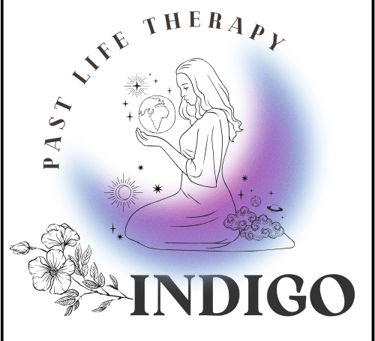
Evidence of Reincarnation Across Religious Traditions
Hinduism, Buddhism, Jainism, and parts of Judaism and Christianity providing various perspectives on the cycle of rebirth.
Dominika Hlouskova
2 min read
Reincarnation, the concept of the soul's transmigration from one body to another after death, has been a prominent theme in various religious and spiritual belief systems throughout history. While often associated with Eastern religions, compelling evidence and interpretations of reincarnation can be found in diverse cultural and religious traditions worldwide. Let's dive into some of the ways different religions provide insights into the idea of reincarnation, offering perspectives that bridge diverse cultural and philosophical boundaries.
In Hinduism, the oldest religion known to humanity, the concept of reincarnation, or samsara, forms a fundamental pillar of its belief system. The cycle of birth, death, and rebirth is intricately woven into the fabric of Hindu thought, supported by ancient texts such as the Bhagavad Gita and the Upanishads. The doctrine of karma, the law of cause and effect, is closely linked to the idea of reincarnation, asserting that one's actions in this life directly influence the circumstances of the next incarnation.
Similarly, within the context of Buddhism, reincarnation, or rebirth, is an essential doctrine. The teachings of Siddhartha Gautama, the Buddha, emphasize the cycle of birth and rebirth as a fundamental truth of existence. Rebirth in Buddhism is intricately connected with the concept of achieving enlightenment and escaping the cycle of suffering, known as samsara. The notion of karma also plays a significant role in shaping the nature of future rebirths, emphasizing the importance of ethical conduct and spiritual cultivation in breaking free from the cycle.
In Jainism, an ancient Indian religion emphasizing non-violence and compassion, the belief in reincarnation is intertwined with the concept of the eternal soul, known as Jiva. According to Jain philosophy, the soul undergoes cycles of birth and rebirth, accumulating karmic imprints based on one's actions and intentions. The ultimate goal is to attain spiritual purity and liberation from the cycle of reincarnation through the practice of right conduct, right knowledge, and right faith.
Moreover, in certain sects of mystical Judaism and esoteric Christianity, there are interpretations that suggest the possibility of reincarnation. Some Kabbalistic teachings in Judaism allude to the transmigration of the soul, highlighting the idea that souls can be reincarnated to fulfill a specific spiritual purpose or rectify past mistakes. Similarly, some Christian mystics and scholars have explored the concept of reincarnation, drawing parallels between certain biblical passages and the idea of the soul's journey through multiple lifetimes.
Across diverse religious traditions, the notion of reincarnation serves as a profound lens through which to contemplate the mysteries of life, death, and the eternal soul. While interpretations may differ, the underlying theme of spiritual evolution, karmic responsibility, and the pursuit of ultimate liberation remains a common thread. The concept of reincarnation, with its diverse interpretations and cultural nuances, invites us to explore the profound interconnectedness of all living beings and the cyclical nature of existence.
As we reflect on the diverse perspectives of reincarnation within different religious traditions, may we find common ground in the shared pursuit of spiritual enlightenment, ethical conduct, and the cultivation of compassion, fostering a deeper understanding of our place in the infinite tapestry of the universe.

My office
Gold Coast, Queensland Australia
Contacts
info@indigoregressiontherapy.com
0421 240 090


CERTIFIED REGRESSION THERAPIST
Dominika Hlouskova
